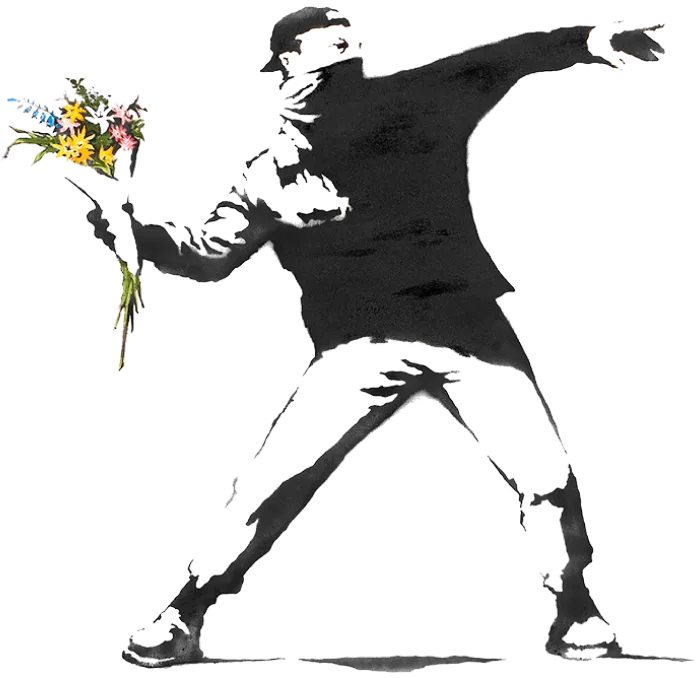Black Mirror On Netflix: 5 Dystopian Visions That Became Reality

Table of Contents
The Societal Impact of Social Media (Episode Inspiration: "Nosedive")
The Curated Online Persona and Social Credit Systems
Black Mirror's "Nosedive" paints a picture of a society obsessed with social ratings, where one's social standing dictates their access to opportunities and even basic amenities. This resonates deeply with our own reality. The episode's portrayal of a meticulously curated online persona mirrors the rise of influencer culture and the pervasive pressure to present a perfect online image.
- Online Reputation Management: Just as in "Nosedive," maintaining a spotless online reputation has become crucial in many aspects of modern life, from job applications to social interactions.
- Social Credit Systems: While not exactly mirroring China's social credit system, the episode foreshadows the growing influence of online reputation on real-world opportunities. Our digital footprint increasingly shapes our access to services, employment, and even social circles.
- Mental Health Impacts: The constant pressure to maintain a high social rating in "Nosedive" directly reflects the real-world mental health challenges associated with social media, including anxiety, depression, and body image issues fueled by curated online personas and algorithmic manipulation.
- Echo Chambers: The episode highlights how social media algorithms can create echo chambers, reinforcing existing beliefs and limiting exposure to diverse perspectives. This phenomenon contributes to polarization and the spread of misinformation, mirroring the concerns raised by "Nosedive."
Surveillance Technologies and Privacy Erosion (Episode Inspiration: "White Bear," "White Christmas")
Constant Monitoring and the Loss of Personal Privacy
"White Bear" and "White Christmas" showcase the chilling consequences of omnipresent surveillance. These episodes starkly reflect the growing concerns surrounding privacy erosion in the real world.
- CCTV and Facial Recognition: The widespread use of CCTV cameras and increasingly sophisticated facial recognition technologies mirrors the constant monitoring depicted in the show, raising ethical questions about privacy versus security.
- Data Collection by Tech Companies: Just like the constant data harvesting portrayed in Black Mirror, tech companies collect vast amounts of personal data, raising concerns about data misuse and the potential for manipulation.
- Government Surveillance Programs: The episodes' portrayal of state-sponsored surveillance finds parallels in real-world government surveillance programs, sparking debates about the balance between national security and individual liberties.
- Ethical Implications: The ethical implications of pervasive surveillance, as explored in Black Mirror, are increasingly relevant in our own time. The potential for misuse of personal data, discrimination, and the chilling effect on free speech are all valid concerns.
The Dark Side of Technology Addiction (Episode Inspiration: "Playtest," "Men Against Fire")
Blurring Lines Between Reality and Virtual Reality
Black Mirror explores the addictive nature of technology through episodes like "Playtest" and "Men Against Fire." These episodes highlight the potential for technology to blur the lines between reality and virtual reality, impacting our mental well-being and manipulating our perception of the world.
- Video Game Addiction: "Playtest" highlights the immersive nature of virtual reality and the potential for it to become addictive, reflecting the real-world concerns surrounding video game addiction and other forms of escapism.
- Social Media Addiction: The constant connectivity and the desire for validation offered by social media, similar to the scenarios in Black Mirror, can lead to addiction and negatively impact mental health.
- Manipulation and Perception: "Men Against Fire" showcases how technology can manipulate perception and behavior, raising ethical questions about the potential for technology to be used to control individuals. This speaks to the power of propaganda and misinformation in shaping our reality.
The Dangers of Artificial Intelligence (Episode Inspiration: "Be Right Back," "Metalhead")
Ethical Dilemmas Surrounding AI Companions and Autonomous Weapons Systems
Black Mirror delves into the ethical implications of advanced AI, portraying both the alluring and terrifying possibilities.
- AI Companionship: "Be Right Back" explores the emotional complexities of AI companionship, prompting reflection on the human need for connection and the potential ethical pitfalls of replacing human relationships with artificial ones.
- Autonomous Weapons: The show's depiction of autonomous weapons systems in various episodes raises serious concerns about the potential for unintended consequences and the loss of human control over lethal force.
- AI surpassing Human Capabilities: Black Mirror consistently explores scenarios where AI surpasses human capabilities, raising questions about the potential for AI to pose an existential threat, a concern shared by leading AI researchers.
- Real-world Developments: The rapid advancements in AI mirror the concerns raised in Black Mirror, underscoring the importance of careful consideration of ethical implications and the development of responsible AI guidelines.
The Manipulation of Information and "Fake News" (Episode Inspiration: "The Waldo Moment," "Fifteen Million Merits")
The Ease of Information Manipulation and the Effects of Propaganda and Misinformation
Black Mirror masterfully illustrates how easily information can be manipulated, influencing public opinion and shaping perceptions of reality.
- Propaganda and Misinformation: Episodes like "The Waldo Moment" and "Fifteen Million Merits" highlight the power of propaganda and misinformation in shaping public opinion, reflecting the challenges of discerning truth from falsehood in the age of social media.
- Media Manipulation: The series demonstrates how easily media can be manipulated to control narratives and influence public discourse, creating a parallel to the real-world phenomena of fake news and disinformation campaigns.
- Social Manipulation: The show explores the various techniques employed to manipulate individuals and groups through social media and other technological means, highlighting the potential for misuse of technology.
- Information Warfare: Black Mirror's depictions of information warfare and the weaponization of information resonate with real-world concerns about the erosion of trust in institutions and the spread of divisive narratives.
Conclusion
By examining these unsettlingly accurate Black Mirror dystopian visions, we can better understand the potential pitfalls of unchecked technological advancement and work towards a future where technology serves humanity, not the other way around. The series serves as a potent reminder of the importance of critical thinking, responsible technology use, and ongoing dialogue about the ethical implications of technological innovation. Start watching Black Mirror on Netflix today and join the conversation about the show's chillingly prescient warnings! Don't miss out on this insightful exploration of Black Mirror dystopian reality.

Featured Posts
-
 Death Of Bernard Kerik Remembering The 9 11 Nyc Police Commissioner
May 31, 2025
Death Of Bernard Kerik Remembering The 9 11 Nyc Police Commissioner
May 31, 2025 -
 Major Archaeological Discovery 3 000 Year Old Mayan Complex Unveiled
May 31, 2025
Major Archaeological Discovery 3 000 Year Old Mayan Complex Unveiled
May 31, 2025 -
 Luxury Car Sales In China Case Studies Of Bmw And Porsches Struggles
May 31, 2025
Luxury Car Sales In China Case Studies Of Bmw And Porsches Struggles
May 31, 2025 -
 Immersive Banksy Exhibit Opens In Vancouver A Must See
May 31, 2025
Immersive Banksy Exhibit Opens In Vancouver A Must See
May 31, 2025 -
 Financial Pressures Facing Uk Veterinary Practices A Bbc News Story
May 31, 2025
Financial Pressures Facing Uk Veterinary Practices A Bbc News Story
May 31, 2025
